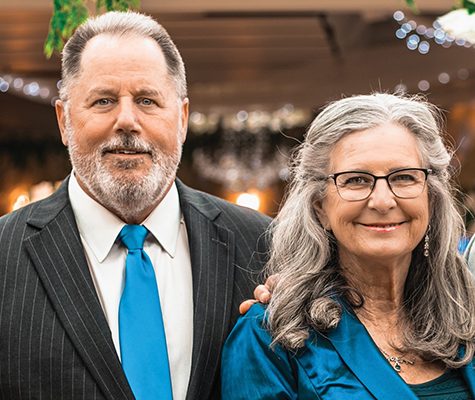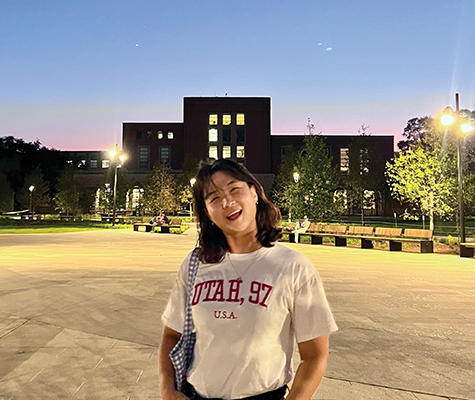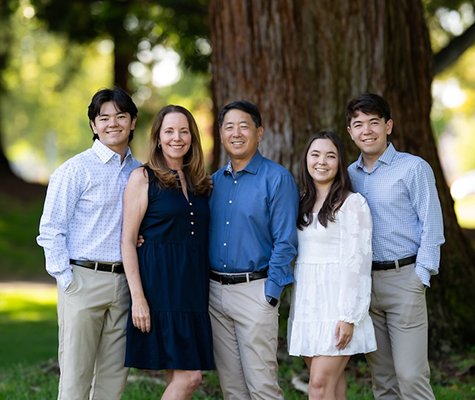Students at the Starting Line:
Pre-matriculation programs create community

Pre-matriculation programs claim a small space in a student’s undergraduate career — typically a few weeks in the summer before classes begin — but the impact of these programs is far-reaching. Shelah Crear, associate dean of undergraduates, speaks passionately about pre-matriculation initiatives and the many ways they build community: “Imagine a world where we create multiple entry points for student engagement and connection. We can help new Owls claim their space at Rice, support their needs and interests and supplement their O-Week experience. If we don’t get that part right, nothing else matters.”
The programs highlighted in the next several pages are designed as bite-sized introductions to college life: connecting students to a wide variety of people across campus, initiating relationships with mentors, providing academic resources, normalizing the college experience and helping students feel connected to Houston.
Jump to the stories below:
RESP | Civic Immersion | Owl Access | RISE
Ready, Set, STEM:
The Rice Emerging Scholars Program
Audrey Odwuor ’17 is a Ph.D. candidate in Earth System Science at University of California, Irvine, where she is studying wildfires and prescribed fire in California. Her research is focused on the interactions among wildfire, climate and society, which included work on the Caldor Fire near Lake Tahoe in late 2021. There, she identified the pervasiveness of PM2.5, a fine particulate matter emitted via combustion, which contributes to environmental concerns, climate change and public health challenges.
Audrey’s undergraduate academic journey began with and was bolstered by the Rice Emerging Scholars Program (RESP), a Rice pre-matriculation initiative. Founded in 2012, RESP ensures that high potential students from under-resourced high schools have the support they need to succeed in STEM majors. Incoming freshmen admitted to the George R. Brown School of Engineering or the Wiess School of Natural Sciences are invited to participate in a rigorous six-week summer bridge program. Once school begins, the program continues with personalized, holistic mentoring and help for the duration of their college experience. RESP has reduced attrition from STEM majors, increased four-year graduation rates and produced tightly knit cohorts of students who are prepared to be leaders and mentors in their own fields.
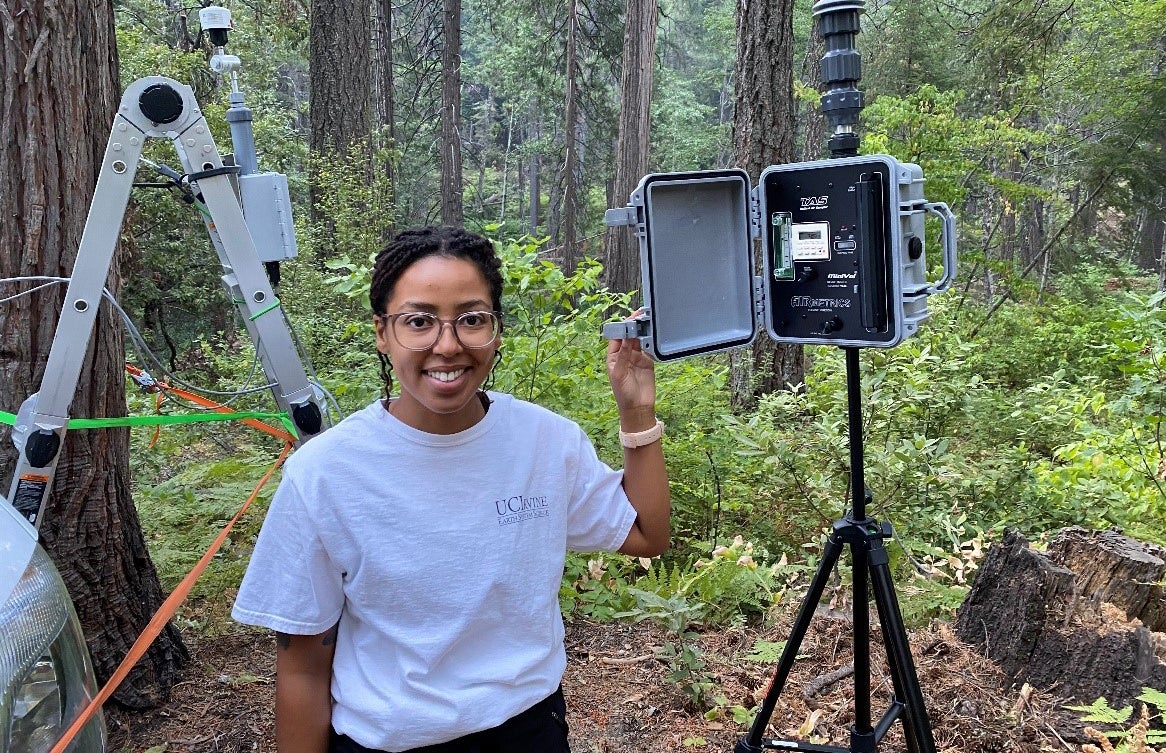
“RESP taught me not to be afraid of hard things, and that understanding helped me get to where I am today.”
—Audrey Odwuor '17
For Audrey, RESP smoothed the transition from high school to college while also providing two components that were essential to her success at Rice: community and academic support. “My closest friends at Rice were RESPies,” Audrey continued. “The program was a chance to meet people across campus, and our shared experiences bonded us tightly together. I learned that I wasn’t the only person who was struggling.” In fact, Audrey credits RESP with opening her eyes to the needs of other students. She saw that her peers were facing the same challenges, an understanding that normalized failure and made taking risks less frightening.
Audrey worked closely with RESP’s director for the entirety of her four years at Rice. She sought advice on everything from campus resources to tutoring to mentoring incoming students. “I reflect often on my time in the Rice Emerging Scholars Program,” Audrey said. “The people I met and the perspective I gained there shaped my entire Rice experience and continues to influence my career today. I learned the true value of mentorship and connection, how to face challenges with courage and optimism, and that the unconventional path keeps life interesting.”
Serving Houston: Ross Rankin Moody Civic Immersion
This summer, over 90 incoming students geared up for their first year at Rice by participating in the Ross Rankin Moody Civic Immersion program, which introduces new students to peers and Houston community leaders through a week of service-based learning. Participants live with their cohorts and are given the opportunity to explore campus, form connections and learn about ways they can continue to serve their communities as college students.
“I chose to participate in Civic Immersion because I wanted to gain a new perspective on volunteering in Houston,” Poema Sumrow ’27 explained. “I was super excited to learn more about serving in Houston, even though I have lived here for three years. Plus, I wanted the opportunity to hear from new organizations and new community partners and to take inspiration from them and plan my time throughout college.”
Guided by current students, the incoming freshmen work with organizations such as the Houston Food Bank, The Beacon and FIEL Houston throughout the week. Maya Harpavat ’26 participated last year as a freshman, an experience that inspired her to become a site leader this year.
“I learned so much from Civic Immersion as a freshman. Not only did I meet some of my best friends at Rice, but I also learned more about community organizations. This program has taught me that community service requires listening and making sure others’ stories are amplified. It’s not about what we imagine to be helpful or impactful,” Maya said.

“Participating in Civic Immersion before my freshman year opened my eyes to service needs and opportunities while also providing connections that helped me to thrive when I got to campus.”
—Maya Harpavat '26
Students of all backgrounds and academic interests are encouraged to participate and share their experiences. Fostering relationships between participants prior to the start of the school year helps students to acclimate to college life more successfully.
“It’s been really great getting to know other people who are interested in different areas of study because we are all bonded together by this shared passion for community service,” Poema said.
As the program came to a close, students were already anticipating their return to campus in the following weeks.
“Even though none of us had matriculated, I already recognized Rice’s culture of care,” Katherine Painter ’27 recalled. “By the end of the week, we were sharing vulnerable experiences, unified in our reflection groups. All of us bonded so well, and I think having already established this close community will be a great comfort as we adjust to university life.”
Finding a home at Rice: Owl Access Supports the Student Experience
When Cordy McJunkins ’21 came to campus in the fall of 2017, he struggled to find his place.
“I had a hard time trying to find people who had the same identity and concerns as I did,” he explained. “Academically, I was managing a much different rigor of coursework that my high school did not prepare me for at all, even with all the AP class I took.” As a first-generation, limited-income (FGLI) student, Cordy worried that his experience at Rice would not live up to his expectations as he began his undergraduate studies.
Despite his concerns, Cordy thrived academically at Rice and began to find his place on campus as he took on leadership positions as an advisor and orientation week coordinator for Duncan College.

“Meeting students with a shared experience or background as you really allows you to take advantage of what Rice has to offer. You can’t succeed in college alone, and it is so important to have a community you can lean on.”
—Cordy McJunkins '21
“Things started to change at the end of my freshman year when I became an advisor on campus and that really changed my perspective,” Cordy recalled. “As I grew my leadership roles junior and senior year, I started to ask myself ‘How can other students who had similar experiences to mine get structured support from the university?’”
His senior year, Cordy says he was determined to improve the experiences of first-generation, limited-income students. After meeting with Shelah Crear, associate dean of undergraduates, and the Office of Student Success Initiatives to discuss plans for supplemental programing, he pinpointed the most important areas of need he hoped the program could address.
“I spent a lot of time thinking about my experience and the experiences of my friends who came from similar backgrounds. That led to a lot of discussions about how to get families involved, housing needs and the resources we could provide that orientation week couldn’t.”
After Cordy graduated in 2021, Kirsty Leech ’23 continued working on a program that would address the needs of FGLI students.
“Using Cordy’s initial idea and my experiences as a first-generation student, I spent three months researching peer institutions, surveying the Rice FGLI population and collaborating with university administration to create a plan for Owl Access,” Kirsty said.
Through her work, Shelah said they built a pre-matriculation program that would be supplemental to O-Week. “We developed sessions that were aimed at demystifying financial aid packages and sessions that discussed the ‘hidden curriculum,’ which are the things students with parents who attended college may automatically know when they enter campus.”
In addition to providing students with resources that can help them navigate their college experience, Shelah says the program was also designed to help students find a community.
“When we were planning the program, we also wanted to help students build their network from the beginning. To do that, we introduced key faculty, administration and departments that we thought would be essential to their success at Rice," Shelah said. "We also wanted to mitigate the feeling of isolation, so students in the program have the opportunity to meet peers with similar experiences.” After years of planning, the inaugural Owl Access program was successfully launched this fall and hosted over 100 FGLI students and their families.
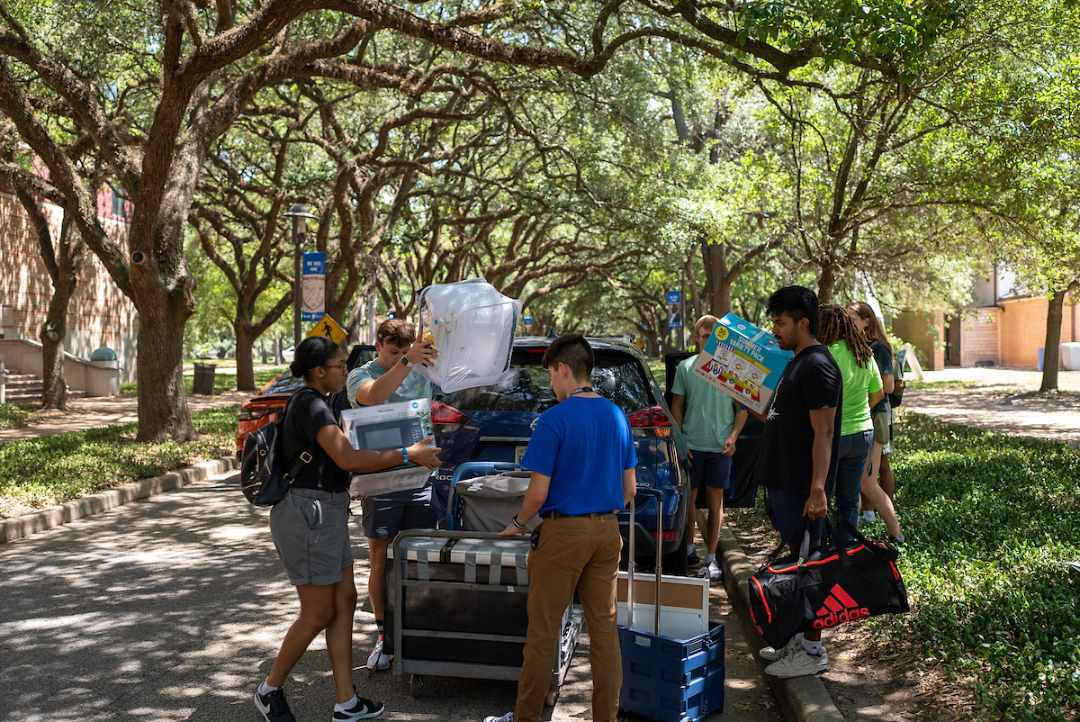
Kirsty graduated from Rice last May but says she is excited to see FGLI students succeed with Rice’s ongoing support. “The work to support historically under-supported student communities in higher education is far from done, but through supporting initiatives such as Owl Access, Rice has committed to taking steps in the right direction, and our Owl community will be stronger for it,” she said.
Kirsty is a Thomas J. Watson Fellow and is currently travelling the world as she conducts research on how families across socio-economic backgrounds navigate disabilities. After her year of research ends, she plans on attending law school and becoming a civil rights lawyer to join the fight towards equity in the US.
Cordy is also grateful that his vision for supplemental programing for FGLI students was realized through the work of Kirsty and the Office of Student Success Initiatives.
“Knowing that this program is being implemented so that other students don’t have to go through what I had to is a reward in itself,” Cordy said.
Since graduating, Cordy has received a Master of Public Policy and a Master of Arts in education at Stanford and is currently studying law at Harvard Law School. He plans on pursuing a career in law and public education and hopes that other alumni and community members will continue to support FGLI initiatives like Owl Access.
“I encourage people to donate to these very specific FGLI initiatives. The students’ lived experiences may be newer and fresher than my own when I was at Rice, and so the programmatic needs are constantly evolving,” Cordy said. “When a student reaches out about a question, be ready to step up and support them. Your help is the backbone of the university in so many ways.”
Exploring Social Justice, Houston, and Life Away From Home: RISE
Like most incoming freshmen, Steven Burgess ’27 was slightly anxious about his upcoming move from his parents’ home in Glendale, Arizona, to living on his own at Duncan College on Rice’s campus. When he received an invitation to attend RISE (Responsibility, Inclusion and Student Empowerment), a pre-matriculation program for humanities and social science majors, he jumped at the early chance for a preview of college life.
RISE — led by Alex Byrd, associate history professor and vice provost for diversity, equity and inclusion, and Chelsea Drake, assistant director — familiarizes new students with Rice and Houston while exploring issues of race, equity and urban life. Students live and learn together on campus for two weeks in the summer, taking a seminar in the mornings and exploring the city in the afternoons. The summer seminar continues during the fall semester.
Steven described RISE as a college pretest. Leaving home often brings new and different challenges, but Steven underscored the benefit of working through those growing pains at a slower pace and with just 19 people. Together, the group lived in the dorms with roommates, went to class, hung out with friends and ate in the serveries.

“RISE was so much fun. The coolest part was that there were moments when were all like one. We were hyping everyone up. There was no negativity. We were in it together.”
—Steven Burgess ’27
“I was really interested to learn about race and place in Houston,” Steven explained. “We had incredible discussions because every student was engaged, contributing their thoughts and perspectives. Rather than individuals making offhand comments, the conversation felt like a snowball growing bigger and bigger. There was morning instruction, but for the most part, we were learning from our own observations and the responses of others.”
The seminar culminated with each student presenting a personal plan of study called a “Core Major,” which should speak to the person they want to become and the good change they want to make in the world. Steven, a photography and film major, titled his Core Major A Lens Through Global Arts. Because you understand human expression from multiple lenses, he envisioned a class on art forms from around the world. His course would ask how people in different regions expressed themselves. Together, the RISE students considered how art can and does change the world and what they can do to engage in that process.
Accelerate the Vision
Rice is dedicated to providing all students with the community and resources they need to thrive from the moment they enter campus. Pre-matriculation programs play a large role in ensuring the success of our Owls, and your support of these programs allows us to amplify their impact. To learn more about supporting pre-matriculation programs, contact Sara L. Rice at 713-348-3189 or sdl@rice.edu.

